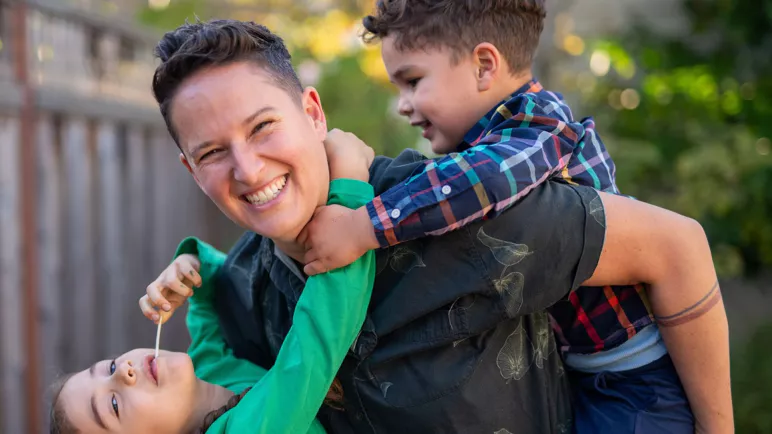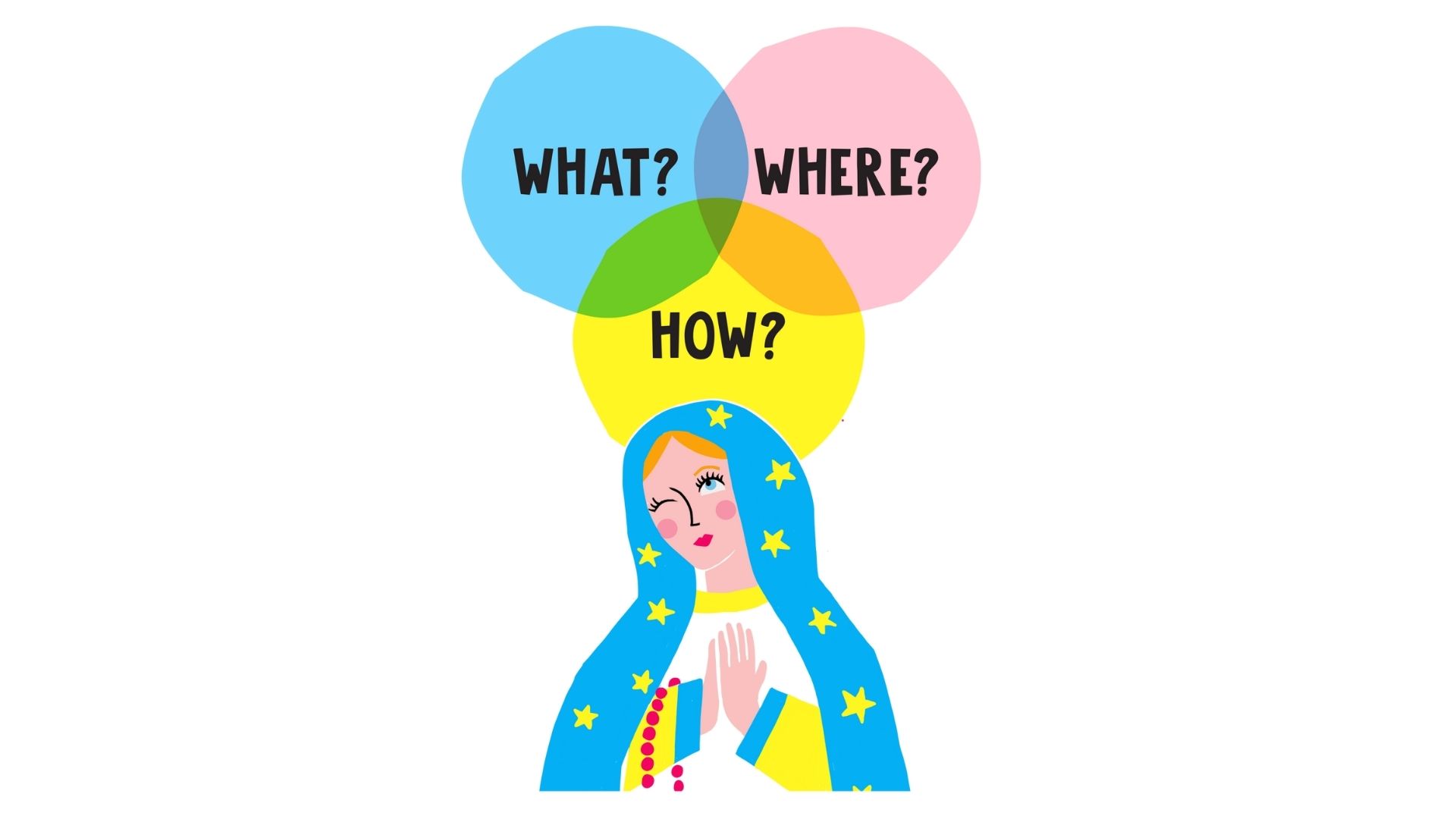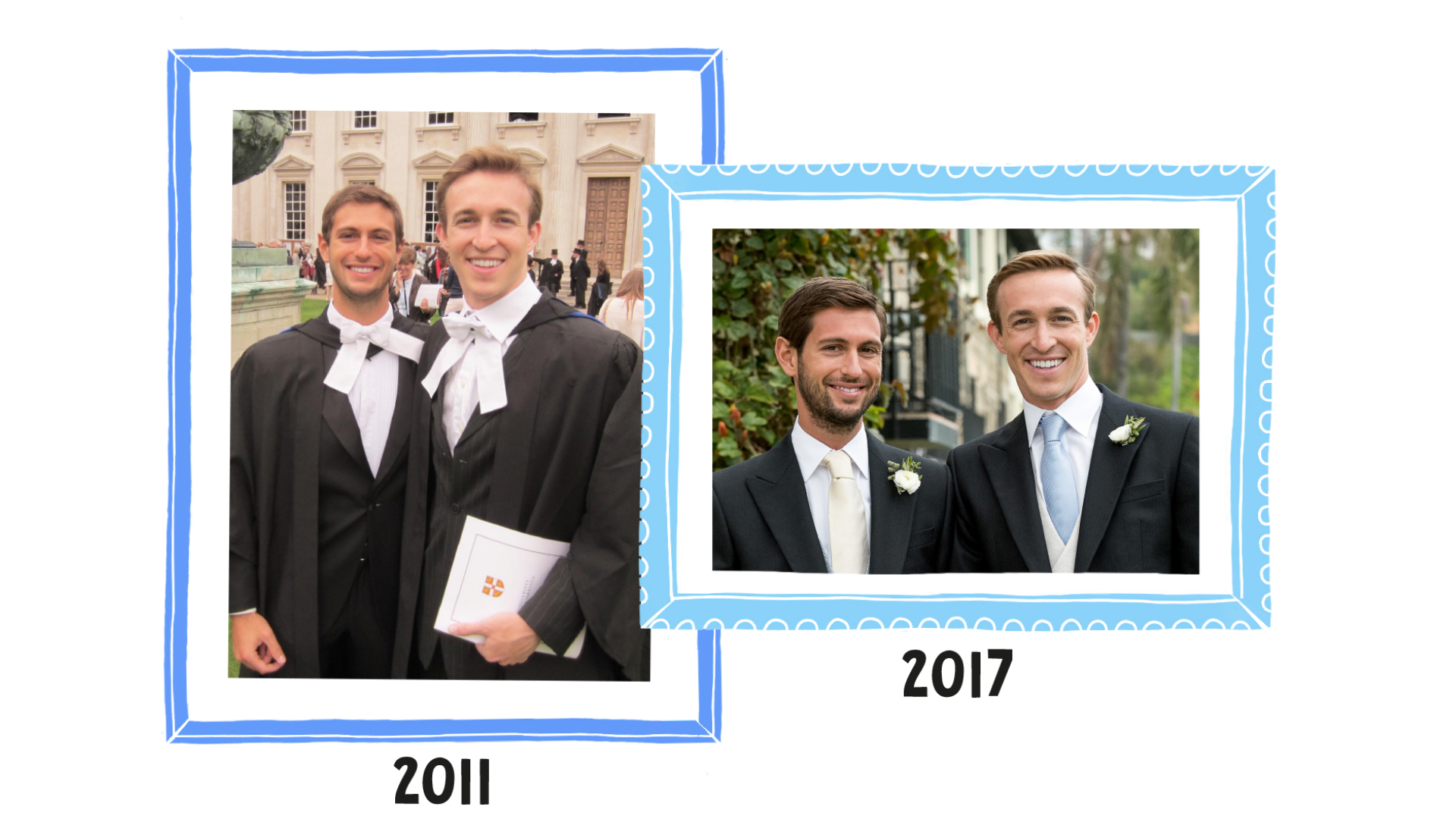Originally posted on LGBTQ Nation October 14, 2025
Message from Brian Rosenberg: As fall settles in and we turn toward the season of gathering and family, it’s the perfect time to spotlight the growing number of LGBTQ+ parents who are choosing midwives for their family-building journeys. To share the invaluable and diverse ways in which midwives serve our community, I turned to my fellow GWK Academy coach, Marea Goodman, licensed midwife, author, and the founder of the queer family-building community PregnantTogether.
For decades, midwives have been stereotyped as fringe birth workers — delivering babies only in candlelit living rooms or rural cabins, far away from modern medicine. (The history behind this is worthy of its own blog post, but that’s for another time!) Today, midwives are everywhere: in hospitals, alongside obstetricians, in birth centers, and in homes. And for a growing number of LGBTQ+ families, midwifery care is becoming a new standard for pregnancy, birth, and postpartum support.
The reasons are deeply personal, but they share a common thread: Midwifery’s emphasis on relationship-based, affirming care aligns with the needs of queer, trans, and nontraditional families who too often feel overlooked in mainstream medical systems.
Midwives in modern family-building plans
One of the biggest misconceptions about midwives is that they’re only for unmedicated home births or can only support someone through pregnancy itself. In reality, midwives practice across the spectrum of reproductive and maternity care. Depending on state laws and training, some midwives also provide fertility-related services, such as intrauterine insemination (IUI) or preconception counseling, sometimes in collaboration with fertility clinics.
In the U.S., there are two types of midwifery certification: licensed midwives and certified nurse midwives (CNMs). Licensed midwives typically work at homes or birth centers, and many offer fertility care. CNMs are licensed health professionals who can prescribe medications, admit patients to hospitals, and manage everything from low-intervention water births to epidurals. They also assist in cesarean sections in collaboration with physicians. They may also work in fertility clinics.
This flexibility is especially important for LGBTQ+ parents, many of whom enter pregnancy with unique medical and emotional considerations. For example:
- A transgender man may want both an affirming provider and access to hospital-based pain management.
- A couple using a surrogate may need a midwife who can support both the birthing person and the intended parents during labor.
- Families facing high-risk pregnancies can still choose midwifery care in hospitals, with OB/GYNs on standby if complications arise.
Rather than limiting options, midwives often expand them — offering personalized birth plans while ensuring safety through collaborative care.
Why midwifery resonates with LGBTQ+ families
The mainstream medical system is not always welcoming towards queer and trans patients and families. Many LGBTQ+ people carry stories of misgendering, invasive questioning, or outright discrimination. The worlds of fertility, pregnancy, and body-feeding can be highly gendered and steeped in heterosexism. With its roots in holistic, patient-centered practice, midwifery can often offer more personalized, affirming care for queer and trans parents and parents-to-be.
Here’s what sets it apart:
- Inclusive language and respect for identities: Midwives are more likely to ask for pronouns, recognize nonbinary parents, and use terms like “chestfeeding” or “pregnant person” when appropriate.
- Affirmation of diverse family structures: Polyamorous triads, queer co-parents, and non-gestational parents are acknowledged as integral parts of the family unit, not sidelined.
- Focus on autonomy and informed choice: Instead of dictating a rigid set of procedures, midwives tend to explain options, risks, and benefits, then support the family’s decisions.
- Continuity of care: Unlike busy hospital practices where a pregnant person may see multiple providers, midwifery care often centers on building a relationship with a small, consistent team.
How to find an LGBTQ+ affirming midwife
For those considering midwifery care, here are some practical tips:
- Start with values-based directories: Local queer parenting groups can be a goldmine of referrals. The virtual community I run, PregnantTogether, is a wonderful resource as well.
- Ask specific questions: How does your practice handle pronouns? Do you have gender-neutral intake forms? How do you include non-gestational parents in care? Do you have any backup midwives? Are they also skilled and experienced in (and excited to) provide care to the LGBTQ+ population?
- Clarify insurance coverage: Many midwives work in hospitals and accept insurance, but independent birth centers and home births may not be fully covered. Some families choose midwives for primary care and transfer to hospitals only if needed.
- Understand state laws: Midwifery regulations vary widely. In some states, licensed midwives can attend home births independently; in others, their practice is more restricted.
While navigating these logistics can feel daunting, families often find that the payoff — a provider who truly understands and respects them — is worth it. I created a free downloadable resource for finding an affirming provider, which you can access here.
More LGBTQ+ parents are discovering that midwives offer not just medical expertise but also compassion, advocacy, and affirmation on the journey to parenthood. Whether in the trying-to-conceive phase, or at a birthing center, the operating room, or home, midwives are helping queer families navigate pregnancy and birth with dignity and choice. And having someone who truly supports your family during all of these phases makes a profound difference.
Visit GWK Academy today, and take your first step toward becoming a parent. We’re with you the whole way. And don’t forget to come back to LGBTQ Nation for monthly family-building insights and support from your friends at GWK Academy.




